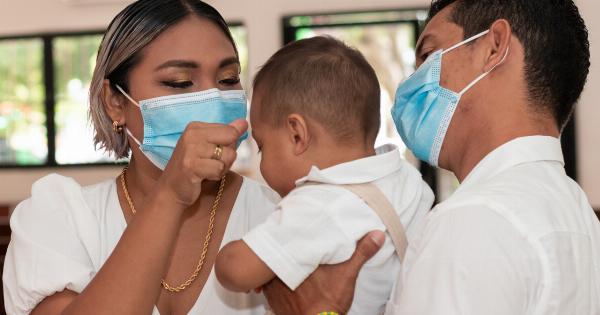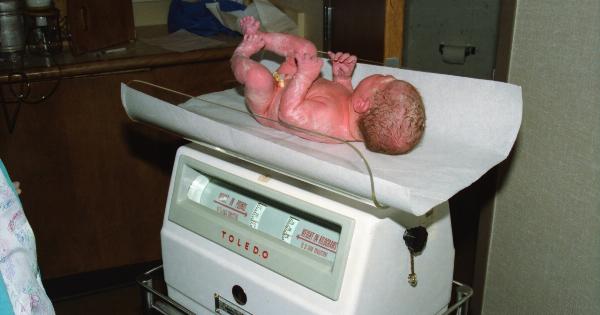Entering the 18th week of pregnancy is an exciting milestone for expectant mothers. By this time, your baby is starting to grow rapidly, and you may begin to notice significant changes in your body.
Here are some frequently asked questions to help guide you through this stage of pregnancy.
Is my baby developing on track during the 18th week?
Yes, by the 18th week, your baby is continually developing and reaching important milestones. At this stage, your little one is about five and a half inches long and weighs around seven ounces.
The baby’s bones are gradually hardening, and the muscles are strengthening, allowing for those adorable kicks you may start feeling.
What physical changes can I expect at 18 weeks?
As your baby grows, you will undoubtedly notice some changes in your body as well. Your belly will become more pronounced, and you may start experiencing some mild discomfort due to increased pressure on your back and pelvis.
Additionally, you might observe changes in your breasts as they prepare for breastfeeding. Some women may also experience changes in their hair and skin during this time.
What should I be eating during the 18th week of pregnancy?
A well-balanced and nutritious diet is crucial for both you and your baby during pregnancy. It’s important to focus on consuming a variety of fruits, vegetables, lean proteins, whole grains, and dairy products.
Make sure to incorporate foods rich in essential nutrients like folic acid, calcium, iron, and omega-3 fatty acids. Consult with your healthcare provider to ensure you are meeting your specific dietary needs.
Can I continue exercising during the 18th week?
Unless your doctor advises otherwise, regular exercise during pregnancy is generally recommended. Exercise can help you maintain a healthy weight, alleviate common pregnancy discomforts, improve your mood, and promote better sleep.
However, it’s crucial to engage in safe and suitable activities, such as walking, swimming, prenatal yoga, or low-impact aerobics. Always listen to your body and avoid overexertion.
How can I deal with common pregnancy symptoms, like morning sickness and constipation?
Many expectant mothers experience morning sickness, especially during the first trimester. Luckily, it tends to subside as you enter the 18th week.
However, if you still feel nauseous, try eating small, frequent meals and avoiding triggers that worsen your symptoms. To ease constipation, ensure you consume a high-fiber diet, drink plenty of water, and engage in regular physical activity. If these symptoms persist or worsen, consult your healthcare provider.
What are some important milestones for my baby during the 18th week?
By the 18th week, your baby is becoming more active and developing crucial skills. They can now hear sounds from the outside world, so consider playing soothing music or talking to your belly to stimulate their senses.
Some babies also begin sucking their thumbs, a comforting habit that aids in their oral development.
How can I alleviate back pain and discomfort at 18 weeks pregnant?
Back pain is a common complaint among pregnant women due to the growing belly and hormonal changes.
To alleviate discomfort, practice good posture, wear supportive shoes, use pillows for back support while sitting or sleeping, and consider prenatal massage or gentle stretching exercises specifically designed for pregnant women. If the pain becomes severe or persistent, consult your healthcare provider for further guidance.
Are there any warning signs or symptoms I should be aware of?
While most pregnancy experiences are generally smooth, it’s essential to stay vigilant and informed.
Contact your healthcare provider immediately if you experience severe abdominal pain, persistent headaches, blurred vision, sudden swelling, severe dizziness, or any other abnormal symptoms. It’s always better to address any concerns promptly.
Can I travel during the 18th week of pregnancy?
Traveling during the 18th week of pregnancy is generally considered safe for most women. However, it’s crucial to consult with your healthcare provider before embarking on any trips, especially if they involve long flights or extensive travel.
Be sure to stretch and move around regularly during travel, stay hydrated, and follow any specific recommendations provided by your doctor.
How can I manage stress and take care of my mental well-being during pregnancy?
Pregnancy can bring about a range of emotions, and it’s important to prioritize your mental well-being. Engage in activities you enjoy, such as reading, practicing mindfulness or meditation, gentle exercise, or spending time with loved ones.
If you notice persistent feelings of anxiety or stress, consider seeking support from a mental health professional who specializes in prenatal care.





























